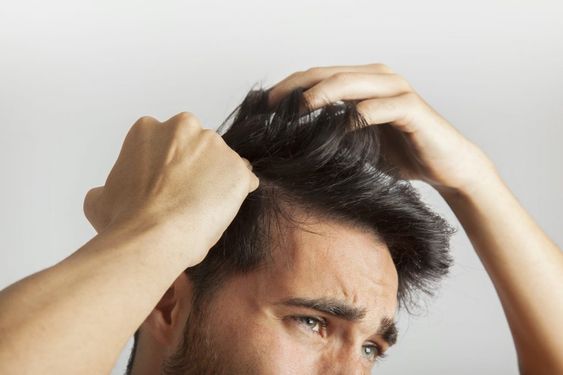How Long Does It Take for Hair to Grow Back: Complete Guide
Hair typically grows at an average rate of half an inch per month, which translates to 6 inches per year. However, this can vary depending on several factors, including:
- Age: Hair growth tends to slow down with age.
- Genetics: Your genes play a significant role in determining your hair growth rate.
- Ethnicity: Studies have shown that Asian hair tends to grow the fastest, followed by white and Latino hair, and then Black hair.
- Overall health and nutrition: Nutritional deficiencies, such as iron deficiency, can slow down hair growth.
- Hormonal changes: Hair growth can be affected by hormonal fluctuations, such as those experienced during pregnancy, childbirth, and menopause.
- Medical conditions: Certain medical conditions, such as thyroid problems and scalp conditions, can also affect hair growth.
The cause of hair loss also plays a role in how long it takes for hair to grow back. For example, hair shaved or cut will typically grow back relatively quickly, while hair loss due to underlying medical conditions may take longer to regrow, or may not grow back at all without treatment for the underlying cause. Read about What Does Cocount Water Taste Like

Understanding the Hair Growth Cycle
Before delving into the duration of hair regrowth, it’s essential to understand the hair growth cycle. The hair growth cycle consists of three phases: the anagen phase, the catagen phase, and the telogen phase.
- Anagen Phase: This is the active phase of hair growth where the hair follicles are continuously growing. The duration of the anagen phase determines the length of the hair.
- Catagen Phase: In this transitional phase, the hair follicles shrink and detach from the blood supply, leading to the cessation of hair growth.
- Telogen Phase: Also known as the resting phase, hair follicles remain dormant before eventually shedding the hair and starting the cycle anew. Discover about How to Get Blood Out of Clothing
Factors Affecting Hair Growth
Several factors influence the rate of hair growth and the duration it takes for hair to grow back:
- Genetics: Genetic predisposition plays a significant role in determining hair growth patterns.
- Age: Hair growth tends to slow down with age.
- Health and Nutrition: Proper nutrition and overall health contribute to healthy hair growth.
- Hormonal Changes: Hormonal imbalances, such as those experienced during pregnancy or menopause, can affect hair growth.
How Long Does It Take for Hair to Grow Back After Hair Loss?
The time it takes for hair to grow back after hair loss depends on the type of hair loss experienced:
- Temporary Hair Loss: Temporary hair loss, such as that caused by stress or certain medical treatments, typically results in hair regrowth within a few months once the underlying cause is addressed.
- Permanent Hair Loss: Conditions like male pattern baldness or certain medical conditions may result in permanent hair loss. In such cases, hair may not grow back without medical intervention such as hair transplant surgery. Don’t Miss to Check Out Our Website: Urbans Outfitter
Tips to Promote Hair Growth
While the rate of hair growth is largely determined by genetics and individual health, certain lifestyle changes and habits can help promote healthy hair growth:
- Balanced Diet: Consuming a diet rich in vitamins, minerals, and proteins is essential for healthy hair growth.
- Proper Hair Care Routine: Regular washing, conditioning, and avoiding excessive heat and chemical treatments can help maintain hair health.
- Scalp Massage: Massaging the scalp can stimulate blood flow to the hair follicles, promoting hair growth.
- Avoiding Stress: Managing stress levels through relaxation techniques and mindfulness can help prevent hair loss due to stress-induced factors.

Seeking Professional Help
If you’re experiencing significant hair loss or are concerned about the rate of hair regrowth, it’s essential to consult a dermatologist or a healthcare professional. They can diagnose underlying conditions contributing to hair loss and recommend appropriate treatments.
Conclusion
The duration it takes for hair to grow back varies from person to person and depends on various factors such as genetics, health, and the type of hair loss experienced. While some temporary hair loss conditions may resolve within months, permanent hair loss may require medical intervention. Adopting a healthy lifestyle, proper nutrition, and seeking professional help when needed can support optimal hair growth.
FAQs
- How fast does hair grow?
- Hair typically grows about half an inch per month on average.
- Can hair growth be accelerated?
- While certain practices like scalp massage and a balanced diet can support healthy hair growth, there’s no guaranteed way to accelerate the process significantly.
- Does hair growth slow down with age?
- Yes, hair growth tends to slow down as individuals age due to changes in hormone levels and reduced blood circulation to the scalp.
- Can hair loss be reversed naturally?
- In some cases, hair loss due to temporary factors like stress or nutritional deficiencies may be reversed naturally with lifestyle changes and proper care.
- When should I seek professional help for hair loss?
- If you’re experiencing excessive or sudden hair loss, it’s advisable to consult a healthcare professional to rule out underlying medical conditions and explore treatment options.

Hi I’m Julie. Meet the talented fashion designer with three years of industry experience— the creative force behind urbansoutfitter.com. As the author of this stylish haven, they bring a fresh and innovative perspective to the forefront of fashion discussions.

